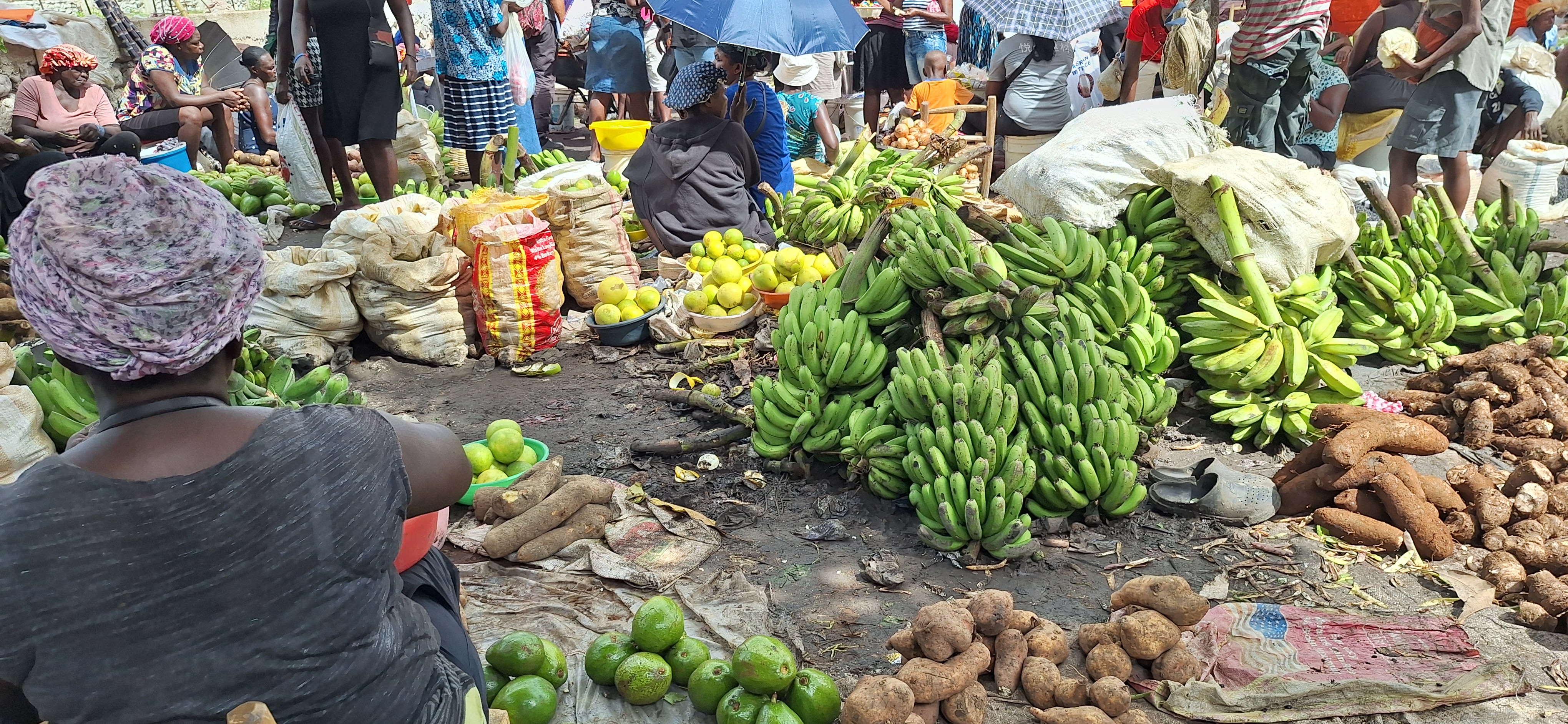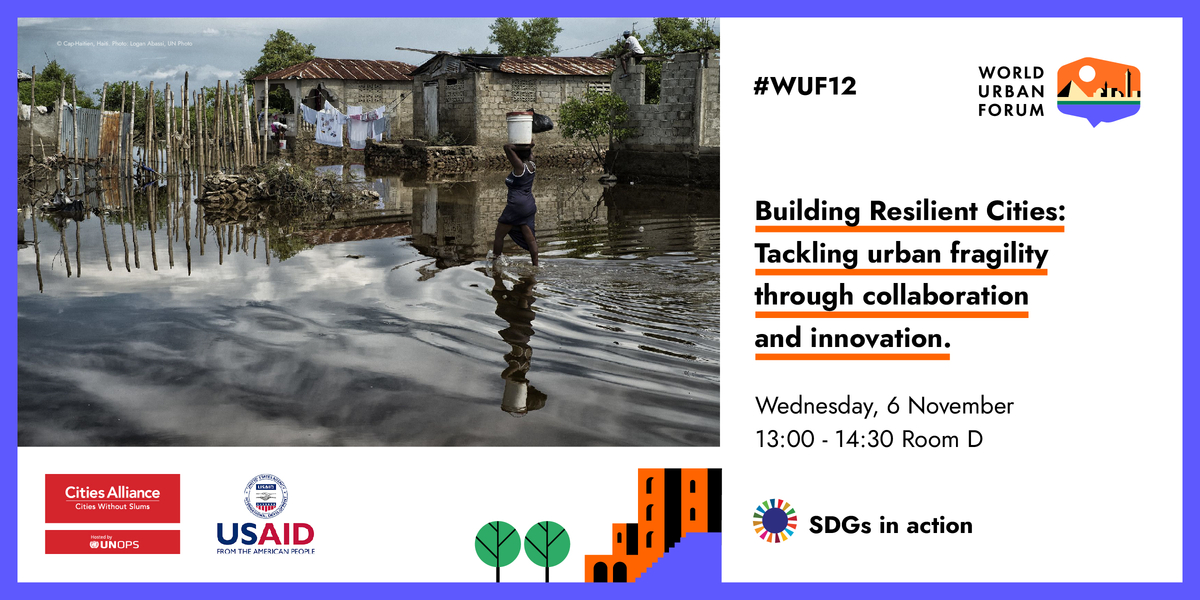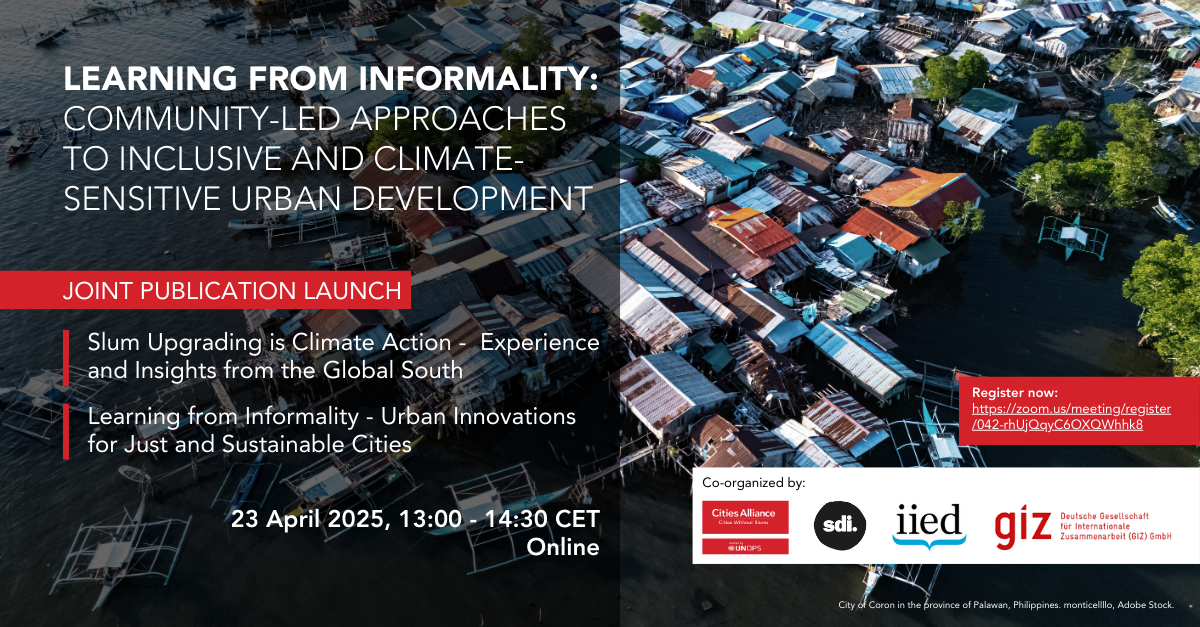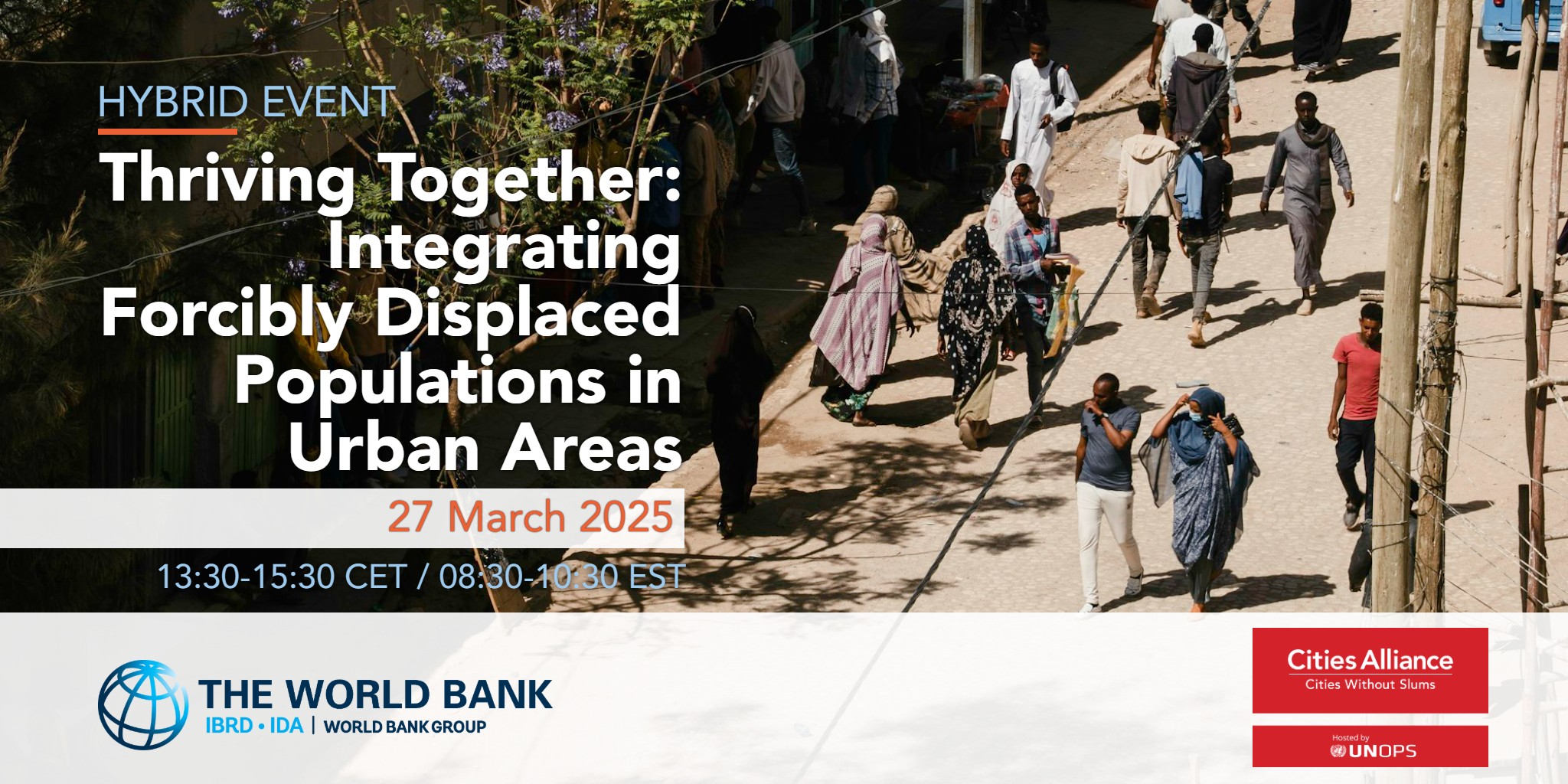- Who We Are
- How We Work
- Regional / Country Initiatives
- Legacy
- Core Themes
- Working Groups
- Portfolio & Results
- Newsroom
- Resources
WUF12: Building Resilient Cities: Tackling urban fragility through collaboration and innovation

Cities Alliance and USAID are organising a session on "Building Resilient Cities: Tackling Urban Fragility Through Collaboration and Innovation" at WUF12.
Urban fragility is multifaceted, encompassing institutional, socio-economic, political, security, and environmental dimensions. It can manifest along a spectrum, from latent to overt violence or armed conflict. The severity of fragility is influenced by risks including the pace of urbanisation, rising income and social inequalities, youth unemployment, increasing homicidal and criminal violence, inadequate access to essential services, and heightened exposure to climate-related threats.
Over the past few decades, the discourse around urban fragility has evolved significantly. This evolution has laid the groundwork for essential dialogue between municipal authorities, local communities, and various stakeholders. It also aligns with the growing emphasis on social cohesion at both the community and institutional levels.
Data suggests that cities are best positioned to transition from fragility to resilience if they proactively create inclusive public spaces, support reliable transport networks, invest in targeted policing for high-risk areas, offer meaningful opportunities for young people, and engage in careful disaster planning. In this context, participatory approaches and open dialogue have proven essential for bolstering urban resilience.
Through this exchange, we hope to provide valuable insights and practical guidance on addressing fragility and building more resilient cities for the future.
Drawing on the extensive global experience of Cities Alliance and its partners, this session seeks to contribute to the ongoing dialogue on urban fragility. It will focus on early interventions, resilience-building, and addressing the often less visible aspects of fragility. Using case studies, we will explore strategies and approaches that offer sustainable solutions for tackling urban fragility.
The session will delve into the various dimensions of fragility and explore the roles of different actors – local governments, communities, international development partners, and cross-sectoral partnerships – in fostering urban resilience and promoting social cohesion. It aims to facilitate the development of shared standards and best practices for practitioners and decision-makers, drawing from real-world experiences.
Objectives
- Analyse the socio-economic, political, institutional, and environmental drivers shaping urban fragility, focusing on their impact and interconnections
- Investigate cutting-edge approaches to strengthen urban resilience and enhance social cohesion, highlighting real-world applications
- Assess how local governance, community engagement, and cross-sectoral partnerships can effectively foster resilience and build stronger, more cohesive urban communities
- Draw key lessons from empirical experiences to map out pathways towards greater city resilience, spotlighting the unique opportunities and risks posed by dynamic urban environments, and identifying practical, actionable steps for all stakeholders
Panelists
Mr Kevin Nelson, Urban Governance Lead, USAID
Mr Ernesto Castro Garcia, Regional Vice President for Latin America and Caribbean, Habitat for Humanity International
Ms Claire Daphné France,Mayor of Les Cayes, Haiti
Ms Nicera Wanjiru, Youth Leader, Muungano wa Wanavijiji
Register on the WUF12 website.





